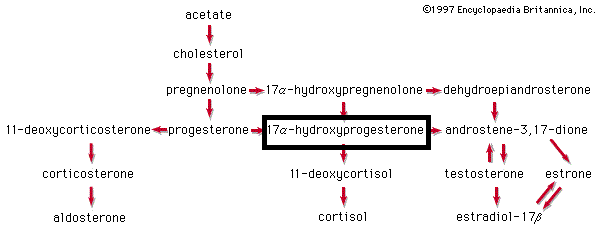Nelson Vergel
Founder, ExcelMale.com
The use of testosterone replacement therapy (TRT) increases blood levels of testosterone but, surprisingly, it decreases the level of testosterone inside the testicles (Intratesticular testosterone or ITT). ITT is key for proper sperm production. This ITT decrease is due to the LH and FSH shut down that occurs with TRT. This shut down decreases ITT and sperm production in men on TRT. These two gonadotropins are required to maintain healthy levels of ITT and, thus, sperm production. Some men on TRT become infertile because of this issue. ITT levels are usually ten times higher than regular blood levels.
Several studies have found that using human chorionic gonadotropin (HCG) while on TRT can normalize ITT and sperm production in some men (older age and longer pre-exposure to testosterone predicted poorer response). However, the optimum dose and frequency of HCG vary in every man.
Fortunately, there are several ways to determine if the dose/frequency of HCG while on TRT is effective: Performing a sperm count/quality test (which requires a 3 month wait period) and/or measuring an upstream hormone to testosterone called 17-hydroxyprogesterone (17OH-P) (which can be measured within 2 weeks of starting HCG). TRT decreases 17OH-P and other upstream hormones due to the shut down of LH (LH is needed to activate the production of these hormones- See figure below). Since HCG mimics LH, using HCG plus TRT may normalize upstream hormones like 17OH-P.
Several studies have found that 17OH-P blood level is correlated to ITT, so testing for this hormone could save time in optimizing HCG dose while waiting for a required 3-month sperm test. The 17OH-P test can also eliminate the need to perform testicular aspirations to measure ITT, which is a very difficult procedure to do and which is reserved for research settings. A study found that a 17OH-P level greater than 6.5 nmol/L (or 215 ng/dL) was found to normalize ITT while using HCG doses of 500 IU every other day plus testosterone enanthate injections given at 200 mg/week. However, only testing sperm count/quality at after 3 months of HCG initiation makes it possible to know for sure if HCG is effective. As men get older and as they are exposed to longer time on TRT, their response to HCG may decrease. These men may need combination approaches using clomiphene and/or FSH (follicle-stimulating hormone).
BUY TEST HERE
References:
Amory et al. Serum 17-hydroxyprogesterone strongly correlates with intratesticular testosterone in gonadotropin suppressed normal men receiving various dosages of human chorionic gonadotropin. Fertility and Sterility. Vol. 89, No. 2, February 2008
For more information on the use of HCG to prevent/reverse testicular atrophy & infertility, and to improve libido in men on TRT, please click here
HCG and Trimix Support Program for Men Already on TRT

Continue reading...
Several studies have found that using human chorionic gonadotropin (HCG) while on TRT can normalize ITT and sperm production in some men (older age and longer pre-exposure to testosterone predicted poorer response). However, the optimum dose and frequency of HCG vary in every man.
Fortunately, there are several ways to determine if the dose/frequency of HCG while on TRT is effective: Performing a sperm count/quality test (which requires a 3 month wait period) and/or measuring an upstream hormone to testosterone called 17-hydroxyprogesterone (17OH-P) (which can be measured within 2 weeks of starting HCG). TRT decreases 17OH-P and other upstream hormones due to the shut down of LH (LH is needed to activate the production of these hormones- See figure below). Since HCG mimics LH, using HCG plus TRT may normalize upstream hormones like 17OH-P.
Several studies have found that 17OH-P blood level is correlated to ITT, so testing for this hormone could save time in optimizing HCG dose while waiting for a required 3-month sperm test. The 17OH-P test can also eliminate the need to perform testicular aspirations to measure ITT, which is a very difficult procedure to do and which is reserved for research settings. A study found that a 17OH-P level greater than 6.5 nmol/L (or 215 ng/dL) was found to normalize ITT while using HCG doses of 500 IU every other day plus testosterone enanthate injections given at 200 mg/week. However, only testing sperm count/quality at after 3 months of HCG initiation makes it possible to know for sure if HCG is effective. As men get older and as they are exposed to longer time on TRT, their response to HCG may decrease. These men may need combination approaches using clomiphene and/or FSH (follicle-stimulating hormone).
BUY TEST HERE
References:
Amory et al. Serum 17-hydroxyprogesterone strongly correlates with intratesticular testosterone in gonadotropin suppressed normal men receiving various dosages of human chorionic gonadotropin. Fertility and Sterility. Vol. 89, No. 2, February 2008
For more information on the use of HCG to prevent/reverse testicular atrophy & infertility, and to improve libido in men on TRT, please click here
HCG and Trimix Support Program for Men Already on TRT

Continue reading...















